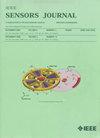Enhancing Underwater Wireless Sensor Network Lifetime: An Energy-Aware AUV-Assisted Data Collection Scheme
IF 4.3
2区 综合性期刊
Q1 ENGINEERING, ELECTRICAL & ELECTRONIC
引用次数: 0
Abstract
Underwater wireless sensor networks (UWSNs) play a crucial role in various applications, including marine environmental monitoring, underwater resource exploration, and intrusion detection. Autonomous underwater vehicle (AUV)-assisted data collection has emerged as a highly promising approach to enhance the capabilities of UWSNs. However, the operation of these networks faces significant challenges, primarily due to the limited and nonreplaceable battery power of sensor nodes and the energy constraint of the AUV. To address these challenges and improve the network lifetime of UWSNs, this article proposes an energy-aware AUV-assisted data collection scheme, named DCCHS, which combines dynamic clustering with cluster head (CH) selection. The DCCHS scheme employs a bottom-up hierarchical clustering algorithm based on the energy center to adaptively form clusters under the constraint of AUV movement distance. Furthermore, an iterative optimization algorithm is applied to select CHs based on residual energy. To balance energy consumption and prevent premature network depletion, auxiliary CHs are strategically added near the AUV path. Simulation results demonstrate that the proposed DCCHS scheme significantly outperforms existing methods in extending network lifetime, particularly in scenarios with dense node deployment. This improvement is attributed to the effective balancing of energy consumption among sensor nodes and the AUV.增强水下无线传感器网络寿命:一种能量感知的auv辅助数据收集方案
水下无线传感器网络(UWSNs)在海洋环境监测、水下资源勘探、入侵检测等领域发挥着重要作用。自主水下航行器(AUV)辅助数据收集已经成为一种非常有前途的方法来增强UWSNs的能力。然而,这些网络的运行面临着巨大的挑战,主要是由于传感器节点的有限和不可替换的电池功率以及AUV的能量限制。为了解决这些问题并提高uwsn的网络寿命,本文提出了一种能量感知的auv辅助数据收集方案,称为DCCHS,该方案将动态聚类与簇头选择相结合。DCCHS方案采用基于能量中心的自底向上分层聚类算法,在水下机器人运动距离约束下自适应聚类。在此基础上,采用基于剩余能量的迭代优化算法选择CHs。为了平衡能量消耗和防止网络过早耗尽,在AUV路径附近战略性地添加辅助CHs。仿真结果表明,该方案在延长网络生存期方面明显优于现有方法,特别是在节点密集部署的情况下。这种改进归功于传感器节点和AUV之间的能量消耗的有效平衡。
本文章由计算机程序翻译,如有差异,请以英文原文为准。
求助全文
约1分钟内获得全文
求助全文
来源期刊

IEEE Sensors Journal
工程技术-工程:电子与电气
CiteScore
7.70
自引率
14.00%
发文量
2058
审稿时长
5.2 months
期刊介绍:
The fields of interest of the IEEE Sensors Journal are the theory, design , fabrication, manufacturing and applications of devices for sensing and transducing physical, chemical and biological phenomena, with emphasis on the electronics and physics aspect of sensors and integrated sensors-actuators. IEEE Sensors Journal deals with the following:
-Sensor Phenomenology, Modelling, and Evaluation
-Sensor Materials, Processing, and Fabrication
-Chemical and Gas Sensors
-Microfluidics and Biosensors
-Optical Sensors
-Physical Sensors: Temperature, Mechanical, Magnetic, and others
-Acoustic and Ultrasonic Sensors
-Sensor Packaging
-Sensor Networks
-Sensor Applications
-Sensor Systems: Signals, Processing, and Interfaces
-Actuators and Sensor Power Systems
-Sensor Signal Processing for high precision and stability (amplification, filtering, linearization, modulation/demodulation) and under harsh conditions (EMC, radiation, humidity, temperature); energy consumption/harvesting
-Sensor Data Processing (soft computing with sensor data, e.g., pattern recognition, machine learning, evolutionary computation; sensor data fusion, processing of wave e.g., electromagnetic and acoustic; and non-wave, e.g., chemical, gravity, particle, thermal, radiative and non-radiative sensor data, detection, estimation and classification based on sensor data)
-Sensors in Industrial Practice
 求助内容:
求助内容: 应助结果提醒方式:
应助结果提醒方式:


